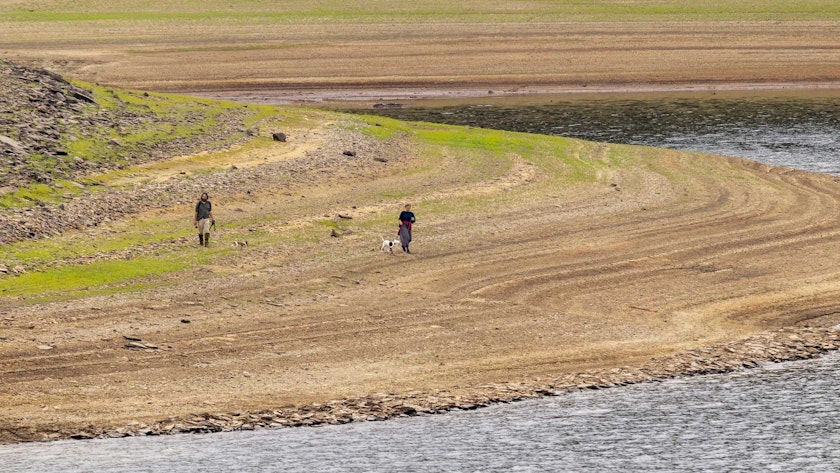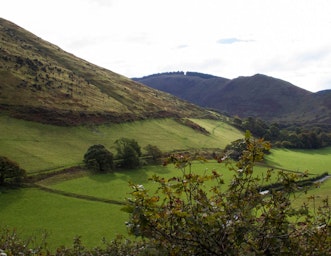
To avoid climate catastrophe, COP27 must move from pledges to action
November 4, 2022Home » To avoid climate catastrophe, COP27 must move from pledges to action
With the next round of UN climate talks about to begin in Egypt, Paul Allen looks at the urgent need for joined-up solutions.
In the run up to COP27 we have seen globally respected organisations from the UN to the Lancet, clearly setting out the very serious nature of the climate emergency and the need for urgent action, and we are increasingly seeing for ourselves the real-life impacts of rising global temperatures, here in the UK and around the world.
Devastating floods in Pakistan have killed over 1,500 people, left millions homeless, and destroyed croplands and vital infrastructure, including hospitals and schools – with effects that will be felt for many years to come.
China has also experienced devastation from a wave of extreme weather emergencies, from severe flooding and landslides to a prolonged summer heatwave that saw temperatures of over 40°C and around 65% of China’s population living under a heat warning.
In Spain, Portugal, France, Greece, Croatia and Albania, soaring summer temperatures led to wildfires that forced thousands to move and led to hundreds of deaths, while here in the UK summer temperatures rose above 40°C for the first time, leading to breakdowns in transport systems and water supply shortages.
These extreme weather impacts are now recognised as a direct consequence of 1.1°C warming of the planet above pre-industrial levels. What is really frightening is that they are occurring more frequently and more intensely than most climate models predicted.
Joined up actions
As the world wakes up to the urgency of the climate crisis, the impact of rising energy prices on households are ongoing and severe, helping drive a wider cost-of-living crisis leading to serious financial hardship for many.
With rising fossil fuel prices, uncertain supply chains and the rapid fall in renewable generation costs, there is a clear crossover between measures that would help address climate change, cut energy costs and increase energy security – with investment in home insulation, onshore wind and solar power being amongst the quickest, most cost-effective measures available to governments looking for joined-up solutions.
There is an urgent need to link things up, to maximise the co-benefits of our actions and build a wider and more diverse coalition to help accelerate a just transition to a safer, fairer, healthier future for us all.

What’s at stake at Sharm el-Sheikh?
Now only days away, COP27 will see negotiations on a range of urgent issues, with key areas including strengthening mitigation measures, supporting adaptation, compensation for loss and damage, and climate finance to help developing countries respond to climate change.
COP26 in Glasgow left us with a serious gap between the agreed national level commitments and the scale of emissions reductions required to give us a chance of avoiding irreversible global climate breakdown. The UN Emissions Gap Report released last week found that current policies will see the world warming by around 2.8°C this century; current pledges will only reduce this to a 2.4-2.6°C rise.
On releasing the report, the UN said: “The international community is falling far short of the Paris goals, with no credible pathway to 1.5°C in place. Only an urgent system-wide transformation can avoid climate disaster.”
The urgency of adaptation planning is also increasingly clear, as accelerating climate impacts continue to destroy lives, livelihoods and ecosystems around the world. The UN Adaptation Gap report released earlier this week found that global efforts on adaptation planning, financing and implementation “are not keeping pace with increasing climate risks”, with current adaptation practice falling “woefully short”.
Finance to support developing countries in mitigation and adaptation is critical, as is agreeing funding to cover loss and damage from climate change in recognition that developing countries, which have contributed least to the problem, are bearing the brunt of climate impacts.

Making change happen
This year marks the 30th anniversary of the signing of the United Nations Framework Convention on Climate Change, in which countries agreed to prevent dangerous climate change, and the 27th time that parties to the convention have come together for the annual Conference of the Parties (COP).
Progress over the decades has been woefully inadequate, and the window in which we can avoid dangerous climate tipping points is almost closed – the need to move from pledges to action has never been more urgent.
Ensuring that everyone has the knowledge and skills to take effective action is a pressing priority. Of course, we need climate-informed activists, scientists and policymakers, in fact we need many more of them. But we also need climate-focused farmers, mechanics, teachers, nurses, lawyers, retailers and chefs to create a wave of transformational change across every sector.
Here at CAT, our courses, training, workshops and events bring people together in-person and online to explore solutions, providing skills, knowledge, understanding and networks to become part of the transformational change that we so urgently need.
By working together in our communities, workplaces, homes and as active citizens pushing for change, we still have a chance to pull the world back from the brink of climate catastrophe and build a better future for all.
About the author
Paul is CAT’s Zero Carbon Britain Knowledge and Outreach Coordinator. He has been involved with our research into zero carbon scenarios since the beginning, coordinating the development of research reports and liaising directly with government, industry, NGOs and the arts to share findings.
- Zero Carbon Britain
- Climate Change
- News Feed
Related Topics
Related Pages
EMAIL SIGN UP
Keep up to date with all the latest activities, events and online resources by signing up to our emails and following us on social media. And if you'd like to get involved and support our work, we'd love to welcome you as a CAT member.



